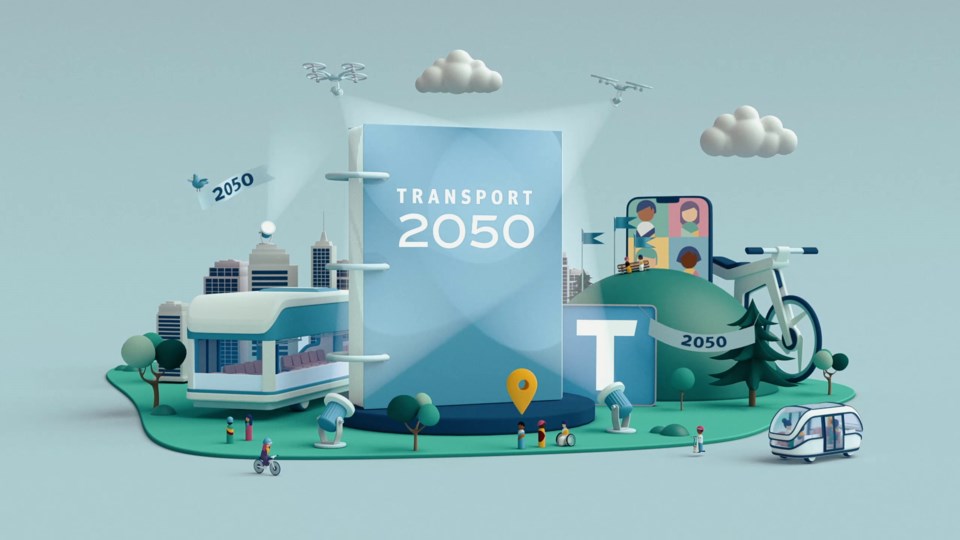Transport 2050 has certainly highlighted how underserved the City of Delta is when it comes to transit options, says Delta’s Mayor George Harvie, and that there’s a need for improvement.
After years of public consultation that started back in 2019, the regional transportation strategy Transport 2050 was voted on and approved Jan. 25 by the Mayors’ Council of Metro Vancouver during their meeting with TransLink’s board of directors.
“I think it’s excellent. The goals that we have as Metro Mayors are extremely high ... As the mayor of Delta, I really want to continue putting pressure for improvements to transit along the south of the Fraser,” says Harvie.
Transport 2050 outlines the transportation vision for Metro Vancouver over the next three decades and will guide decision-making surrounding transport within the region.
It presents more than 100 actions and strategies with the five goals of delivering convenient, reliable, affordable, safe and comfortable, as well as environmentally sustainable transportation, “regardless of whether you primarily drive, take transit, walk, cycle or roll,” reads TransLink’s press release.
Some of the bigger key actions include creating an 850 km, connected, traffic-separated bikeway network, quadrupling the rapid transit network with more than 300 kilometres of new rapid transit, and dedicating more streets specifically for walking, biking, rolling and taking transit.
“We do have a successful working [relationship] with Surrey to establish the RapidBus service along Scott Road, which is a very busy corridor now, and I’m very pleased that it’s happening, but we need more,” added Harvie.
There are meetings scheduled in the near future with TransLink’s CEO Kevin Quinn to discuss improved service to South Delta that includes the Tsawwassen First Nation, he explains.
“And with the announcement of the new Massey Tunnel replacement project, it’s only going to work if we have the [transit] options available for people to get out of their cars – and it has to be reliable, it has to be affordable,” he added.
From the beginning of the public consultation up to the approval of the regional transportation strategy, TransLink hosted more than 350 events that resulted in 160,000 conversations, 38,000 surveys and 4,000 ideas.
TransLink will now work with the Mayors’ Council to prioritize shorter-term action items from the strategy through developing a detailed implementation blueprint, which is projected to be released later this year.



